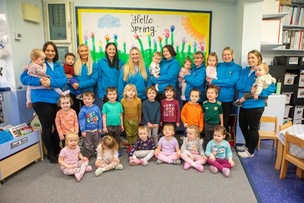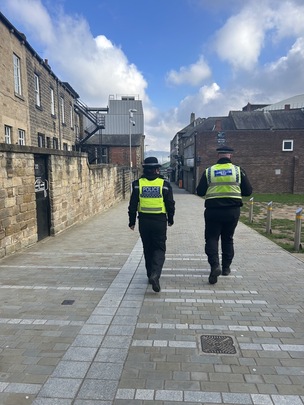A LOCAL support group for parents and carers of kids with special education needs in the borough is appealing for their voice to be heard by Barnsley Council after being left ‘ignored’ for the last five years.
Approximately £195,000 has been spent specifically on parent participation over the last two years, though Jonathan Wainwright, who runs campaign group Barnsley SEND Matters, said complaints are still being received from fed-up parents and carers.
He told the Chronicle: “There’s been £195,000 pumped specifically into participation and we have literally nothing to show for it, and local councillors will not hold those that are in charge accountable for the money.
“We’ve tried to get meetings set up with those who are in charge but they’re just refusing to speak to us in a meeting - they will not meet with our action group and do not give a reason.
“When we asked to scrutinise what they were doing in the form of a public meeting, they refused unless we supplied a set amount of questions for them which is ridiculous because if they really were confident with what they were doing and how they were spending the money, why would they not speak to us?
“The council employed someone so parents were able to have their own voice but it’s two years on and we are still yet to have a proper channel where we can voice our views - it’s a ticking time bomb.”
Between one in six and one in five children are considered to be in the SEND bracket in Barnsley, meaning that throughout the borough there are approximately 14,000 SEND kids.
In a cabinet meeting last week, council leaders approved a report to provide educational support to pupils with sensory impairments in their local mainstream school.
Bosses heard that until the beginning of the autumn term last year, the council commissioned resourced provision to support the education needs of up to eight children with visual and/or hearing impairments.
Demand for the commissioned places has been very low for a number of years and the commitment of the council and its partners is that, wherever possible, children with sensory impairments should be educated in the school of their choice, according to a report.
Due to an advancement in technology, children are now able to be supported at their local school based on their education, health and care plan (EHCP) - the ‘bible’ for SEND kids, campaigners say.
Members have therefore agreed to cease the current form of provision, and deliver the new support to children in their local mainstream school from September this year.
Coun Margaret Bruff, cabinet spokesperson for children’s services, said: “This decision will enable more children with sensory impairments to be educated alongside their peers and their local school, within a mainstream environment.
“Provision for pupils with SEND will continue to be reviewed for effectiveness in meeting need.
“This is part of our statutory responsibility and the aims of the council’s SEND school placement sufficiency strategy.”
In response to the statement put out by the council, Jonathan added: “It is embarrassing because they appear to be trying to put a spin on it as if it is about the council being more inclusive, when it is clearly about saving money.
“It is really sad that that option has gone - especially when you consider the amount of money that has come into the borough to expand specialist provision and yet they are taking that away.
“I do know that schools have stopped funding nurses to go into schools to give support with hearing aids which is disastrous for children.
“It is one thing to have support listed in an EHCP in a mainstream school, but no-one is actually checking that that support is happening.
“Resourced provision meant accountability and that will now be lost and diluted.
“It is a sad and worrying time.”
Jonathan has two children, one of whom is severely autistic, and he feels that schools are not doing enough for children in the SEND bracket.
“We’re yet to get confirmation regarding social care in the summer.
“Our kids are considered as those that are most in need in the country yet we feel that we are being completely ignored.
“Fundamentally all we want to do is to help.
“We’re not having a pop at the council for the sake of it, we just want to help and work with them so we can share the responsibility.”





























